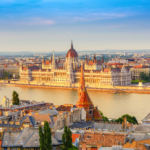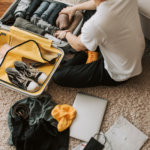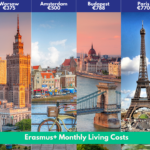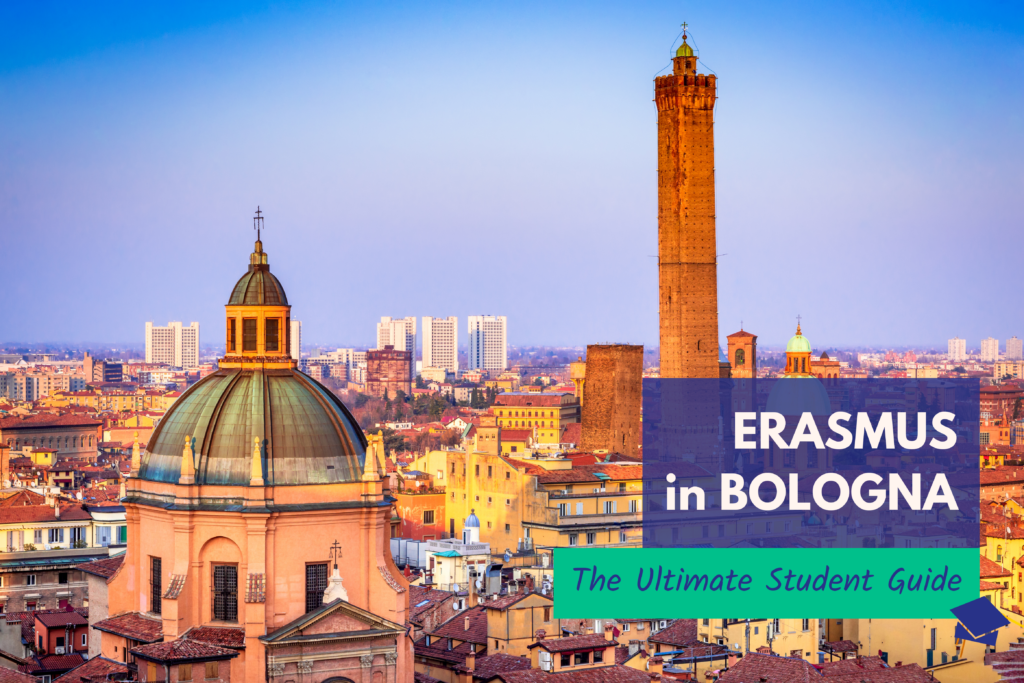
Planning your study experience in Bologna? Whether you’re figuring out where to live or what to eat first, here’s the guide about studying in Bologna. Practical tips, fun facts, and everything you need to make the most of your Erasmus in Bologna.
Cost of Living in Bologna
On average, international students may spend between €600 and €1,200 per month, covering rent, food, transportation, and other expenses.
Monthly Expenses
Shared flat: €400–€500 + €100–€150 for utilities per month
Student dorm: €350–€450
Groceries: €150–€300
Public transport pass (people under 27): €30
Meal at a casual restaurant: €15
The Best Area to Stay in Bologna as a Student
The best area to stay in Bologna depends on your budget and lifestyle, but student favourites include:
Old Town Centre: Ideal if you want to be close to university buildings and nightlife, though it’s the most expensive.
San Vitale & Porta Saragozza: Lively, student-friendly, and full of restaurants and bars.
Murri & Saragozza: More residential, elegant areas a bit outside the centre.
Strada Maggiore: Well-connected and quieter.
Public Transportation in Bologna
Bologna’s public transport is run by TPER and includes a solid bus network:
Monthly pass (people under 27): €30
Single-use ticket: €2.30 (valid for 75 minutes)
10-run city pass: €19
A tram system is also under development, set to launch in 2026.
Getting from Bologna Airport to the City
The fastest way to get from Bologna Airport (BLQ) to the city centre is by using the Marconi Express: a 7-minute monorail ride (€12.80 one-way, €23.30 round trip).
You can take bus number 944 to Bologna Centrale train station. It runs from 4:00 am to 2:00 am. The ride takes about 15 minutes and costs €4.
Taxis or Ubers are also available, with similar fares.
Useful Italian Phrases
While many people understand English, especially in tourist spots and among younger people, learning some Italian phrases can help.
Ciao – Hello / Bye
Per favore / Grazie – Please / Thank you
Prego – You’re welcome
Si, no – Yes, no
Non capisco – I don’t understand
Scusi / Scusa – Excuse me (formal / informal)
Il conto, per favore – The bill, please
Mi dispiace, ma non parlo italiano – Sorry, but I don’t speak Italian
Locals truly appreciate the effort, even if you only know a few words!
Bologna’s Weather
Pack for all seasons and make sure to bring a raincoat!
Cold winters: Down to 1°C, especially in January and February
Hot summers: Up to 35°C in July and August
Mild springs and autumns: Temperatures between 14°C and 25°C
What to See in Bologna: Must-Visit Places
The Two Towers (Asinelli & Garisenda). Bologna’s iconic leaning towers and a symbol of the city’s medieval heritage.
Piazza Maggiore. The heart of Bologna’s historic centre, and the perfect place to meet friends, grab a gelato, or just people-watch.
San Petronio Basilica. Overlooking Piazza Maggiore, this Gothic church is one of the largest in the world.
Fountain of Neptune. A Renaissance fountain featuring the god Neptune. Locals often joke it’s Bologna’s most photogenic meeting spot.
Finestrella (Canale di Reno). Known as “Little Venice,” this tiny window on Via Piella reveals a secret canal that runs through the city.
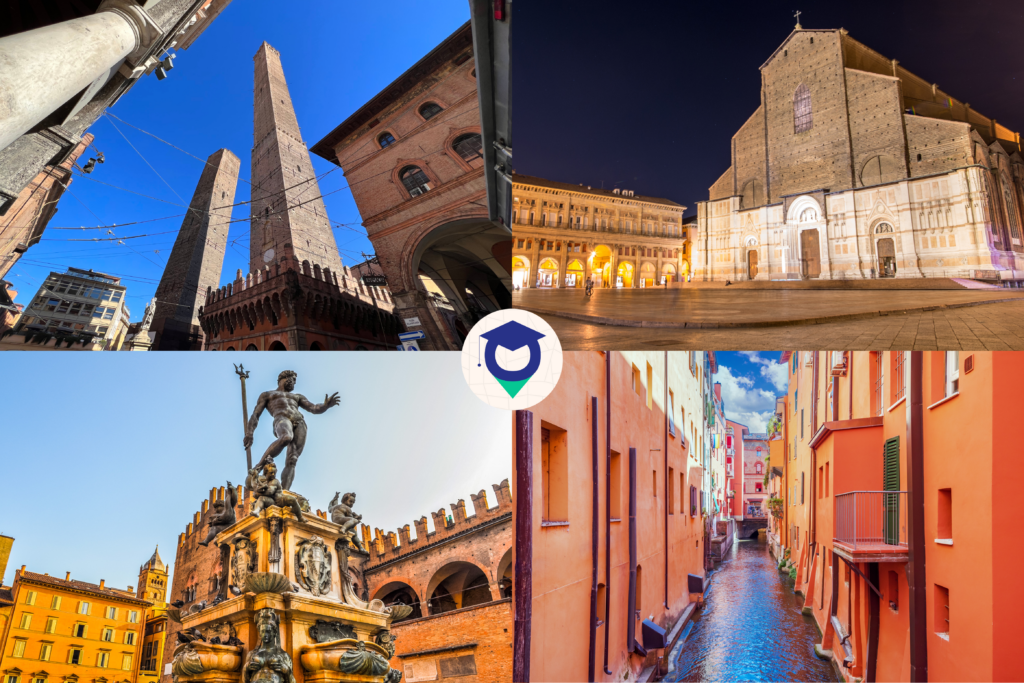
Must-Try Bologna Food
Get ready to fall in love with Bologna cuisine! The city is a foodie’s paradise:
Tagliatelle al ragù (the real “spaghetti bolognese”)
Tortellini in brodo (served in broth)
Lasagne (yes, they were born here!)
Mortadella (the original Bologna sausage)
Explore Bologna best restaurants like Trattoria Meloncello, Osteria dell’Orsa, or Sfoglia Rina for an authentic local experience.
4 Things to Know Before Going to Bologna
- In Bologna, the Aperitivo is a beloved tradition, especially popular among students. Every evening around 5–6 p.m., bars offer drinks paired with delicious snacks. It’s a great way to mingle with other students. Though after a few days, you might find yourself stuffed from all the amazing food!
- Did you know the University of Bologna is the oldest in the Western world? It was founded in 1088!
- Bologna is known by three famous nicknames: La Dotta (the learned) for its university, La Grassa (the fat) for its mouthwatering cuisine, and La Rossa (the red) for the city’s distinctive red rooftops.
- Be sure to check out ESN Bologna for meetups, trips, and a community of Erasmus in Bologna!
Important Phone Numbers
European Emergency Number: 112
Police: 113
Fire Brigade: 115
Medical Emergency Service: 118
Road assistance: 116
Pack smart and don’t forget to bring a good appetite, your curiosity, and travel insurance for a worry-free adventure. Buon viaggio!

